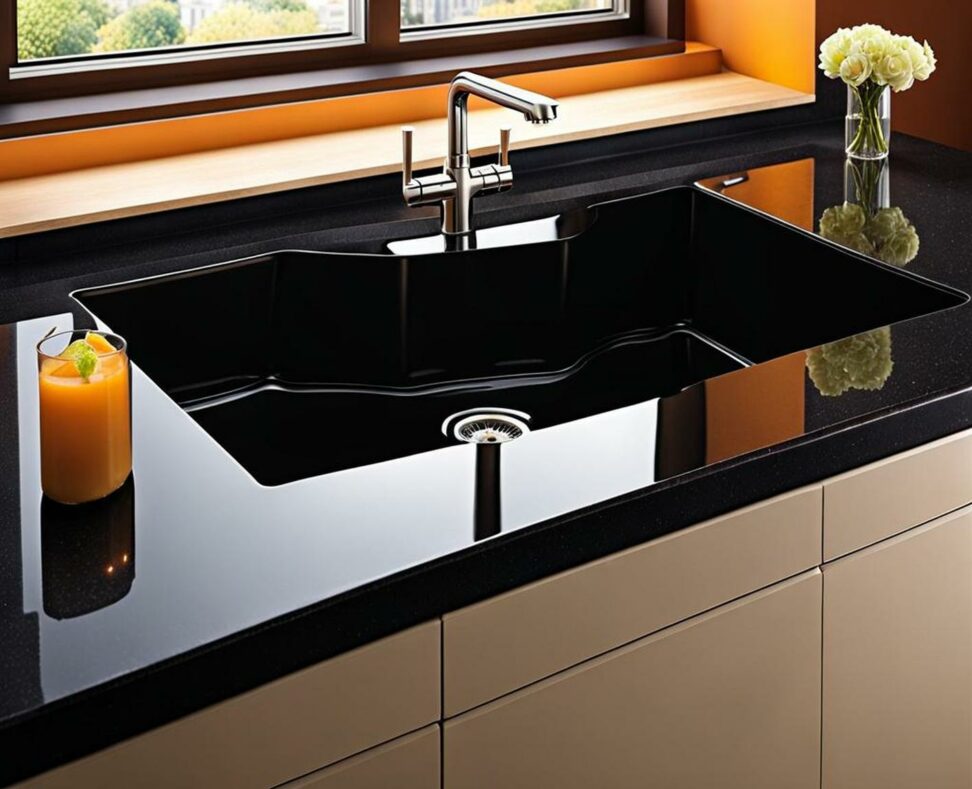Do Black Kitchen Sinks Really Scratch Easily? Facts vs Myths
Choosing the perfect kitchen sink is an exciting part of a renovation project. For many homeowners, black sinks are an alluring and stylish option. But concerns may arise about potential scratching and signs of wear over time. Let's explore what sink materials hold up best against scratches to help you select a durable black sink.
With so many options on the market, it's essential to understand how material impacts scratch resistance. We'll compare popular choices like granite composites, stainless steel, and porcelain. You'll get the facts to decide if a quality black sink can handle years of heavy use.
Black Kitchen Sink Materials
Not all materials are created equal when it comes to durability. Let's look at what today's most popular options are made of and how they resist scratches.
Granite Composite
For a nearly scratch-proof black sink, composite granite is a top choice. These sinks consist of a mixture of crushed granite, quartz, and acrylic or polyester resins. The result is an extremely hard, non-porous surface.

Dense granite composite can withstand cutting, impacts, and abrasions that would readily scratch other materials. Hot pots and pans won't scorch these sinks either. The stone-like material resists stains and daily wear and tear.
With toughness similar to real granite, these composite sinks provide stunning black color options. Their shine holds up beautifully under heavy use.
Quartz
For another scratch- and stain-resistant choice, sinks made of quartz crystals deliver durability. Quartz comprises ground natural quartz blended with resins and pigments. The mixture creates a sink surface even harder than granite.
As an engineered stone, a quartz sink surface rivals diamonds for hardness. The material's density makes it practically impervious to scratches. Quartz also shrugs off high temperatures, chips, and typical impact damage.
With crystalline sparkle, quartz makes a stylish statement. The rich black color and glossy finish maintain their beauty despite heavy daily use.
Porcelain
Porcelain enamel over cast iron creates a versatile kitchen sink material. But compared to granite and quartz composites, porcelain is more vulnerable to chipping and scratching over time.
Porcelain comprises clays, feldspar, and other minerals fused at high temperatures. The slick glass coating resists moisture and stains. But porcelain's hardness falls short of natural stone.
With a black porcelain finish, even minor scratches become highly visible. The sink's susceptibility to damage increases with heavier use.
Stainless Steel
Finally, stainless steel ranks lower for scratch resistance. Brushed steel offers a bit more durability than traditional chrome or PVD black finishes.
Stainless steel's softer surface easily shows fine scratches from metal cookware and utensils. Even minor abrasions on a black sink will stand out prominently.
While less scratch-prone than other metals, stainless still falls short of materials like quartz. For a black sink that withstands heavy daily use, other options provide longer-lasting shine and fewer signs of damage.
Do Black Kitchen Sinks Scratch Easily?
Whether a black kitchen sink scratches easily depends on several key factors. Let's examine myths versus facts.
Factors That Impact Scratch Resistance
To understand scratch potential, we have to look at:
- Sink material and quality
- Proper daily use and care
- Frequency and type of use
Higher-quality materials resist damage better. But no sink is immune to scratches without proper maintenance.
Myth: All Black Sinks Scratch
It's false to claim every black kitchen sink will scratch readily. Material matters.
Porcelain enamel does tend to scratch easier than composites. But quality quartz and granite options boast incredible scratch resistance.
Stainless steel scratches more easily than stones. But even stainless holds up better than materials like chrome or plastic laminate.
Fact: Scratches Happen Over Time
No material remains perfect forever, even the hardest granite or quartz. Light surface wear does occur with daily heavy use over many years.
This doesn't mean deep gouges. Minor scratches may not even impact function or beauty significantly. The key is selecting a durable material to minimize damage.
Maintenance Tips
Prevention and care make any black kitchen sink more scratch-resistant.
Preventing Scratches
Reduce the risk of scratching by:
- Using a sink grid, protector mat, or in-sink dish rack
- Hand-washing heavy pots, pans, and utensils
- Avoiding abrasive cleaners and scouring pads
Daily care prevents sink damage. Hand wash heavy items that could scratch. Use non-abrasive cleaners and soft sponges.
Caring for Existing Scratches
For light scratches:
- Use a DIY scratch repair kit
- Lightly sand and re-finish worn areas
- Embrace the patina of use over time
Scratches don't necessarily ruin a sink. Minor scratches can be sanded smooth and touched up. Accepting some character from daily love gives a sink charm.
The facts show quality composite granite and quartz sinks resist scratches incredibly well. Even stainless steel offers decent durability.
With proper care, any black kitchen sink will maintain its beauty and function for years. Focus your choice on finding the right durable material for your needs.
A top-quality composite sink brings you peace of mind against scratches. You can confidently enjoy an eye-catching black sink every day without worrying about damage.